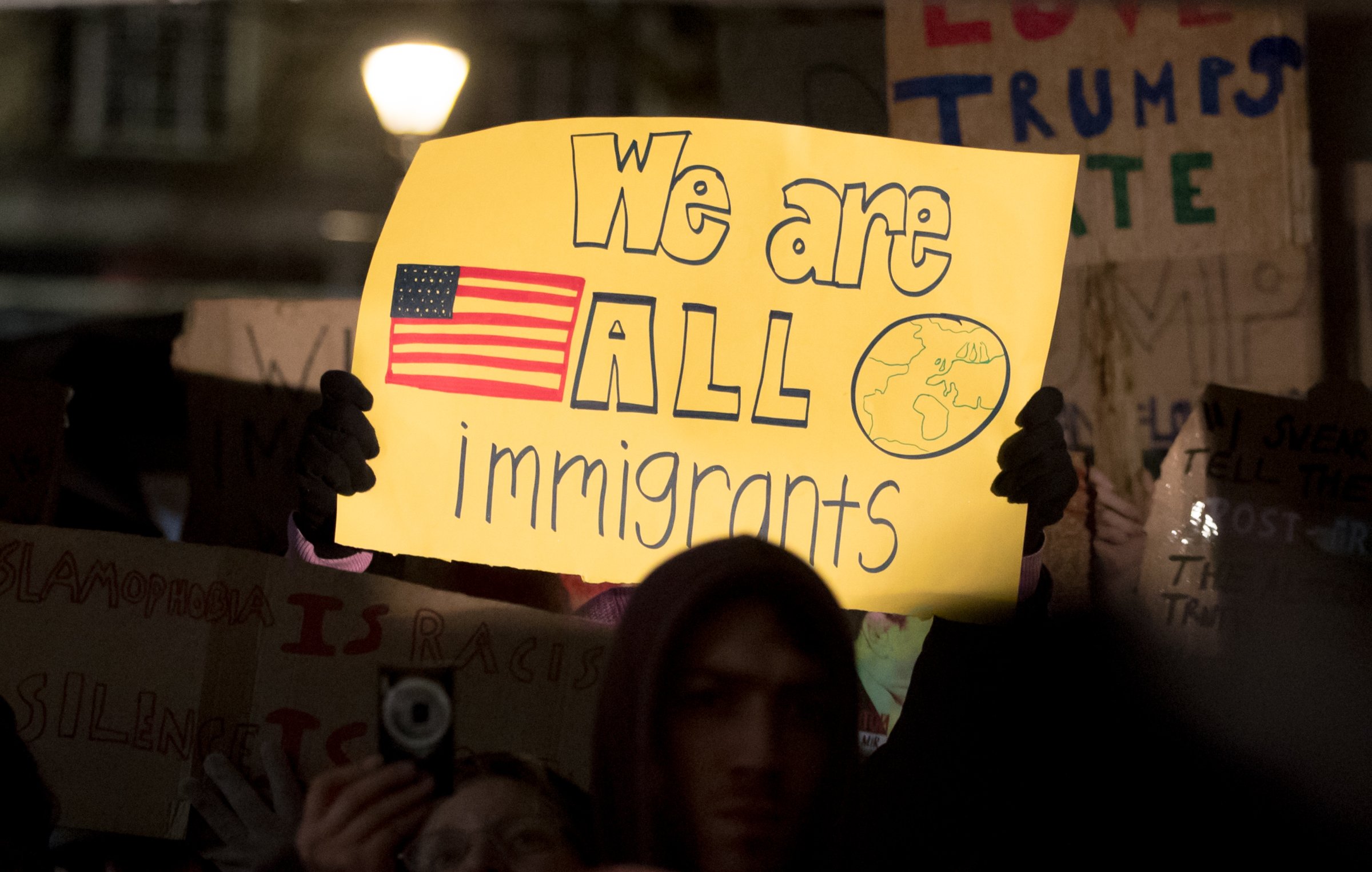
As someone who came from Syria more than half a century ago to make a new life in Europe, I am deeply saddened that the new President of the United States has introduced orders temporarily banning refugees in general and specifically targeting all people from Iran, Iraq, Libya, Somalia, Sudan, Syria and Yemen.
The U.S. is a great democratic country, built on immigration and the amazing talents and entrepreneurship of immigrants from all over the world, who were offered opportunities in America and then made the most of them by working hard and giving back over and over again to their adopted country.
What would it say to the world if the U.S. permanently shuts its doors to refugees from some of Earth’s most troubled countries? It would not only show that this great country has forgotten the contribution that immigrants have made to it. It would also demonstrate that it has lost its heart, its renowned generosity and innately charitable nature.
These immigrants and refugees, many from my country of birth, Syria, should be seen as an opportunity for the U.S., an investment in the future. Previous Syrian immigrants to the U.S. and their descendants are now businessmen, entrepreneurs, scientists, artists and sportsmen; experts in every field who have helped to make America great.
The biological father of Steve Jobs, the Apple founder who is rightly renowned as one of the U.S.’s greatest ever entrepreneurs, was from Homs in Syria. The grandparents of Jerry Seinfeld, one of the U.S.’s most influential comedians, came to America from Aleppo.
“Something there is that doesn’t love a wall,” as Robert Frost wrote and U.S. President John F. Kennedy memorably said in front of the Berlin Wall. Building walls, whether physical, legal, or mental, is not the answer to any problem, even ones as important as employment or security. The sad truth is that terrorists do not respect borders. Terrorism cannot be defeated by controls. It can and will be defeated by all those, Muslims and non-Muslims, holding fast to the values we share of compassion, hospitality and justice.
The likes of ISIS are abhorred by the vast majority of Muslims who have suffered much more at their hands than non-Muslims. But ISIS and its kind have attracted support by propagating a false but compelling narrative that the West is hostile to Muslims. To treat, or appear to treat, everyone from a set of Muslim majority countries as though they are all guilty is exactly the kind of response that Islamist terrorism has sought to provoke.
I left my country when I was 23, after my mother begged me to leave during yet another time of turmoil in Syria, and I went to the U.K.. I was made to feel welcome there and have always been grateful for the opportunities it gave me and the kindness of its people. Like many other refugees I try to give back to the country which welcomed me – this was one of the reasons why I founded the Saïd Business School at Oxford University.
Since 2011, half the population of Syria has been displaced by the conflict there – they have either been forced out of their homes to other parts of the country, or have fled as refugees. More than one million of them are in Lebanon, a tiny country with a population of about four million and limited resources. This is the equivalent, in population terms, of 80 million refugees going to the U.S.. The Lebanese have shown extraordinary generosity and humanity in welcoming these Syrians.
The vast majority of the world’s refugees are not taking any resources from the West – they are in developing countries which are themselves struggling with poverty and insecurity. A large proportion of refugees are children, most of whom are unable to attend school. If you talk to any children or students in the refugee camps, what is most important for them is to have an education.
I have sat down with parents in these camps, living in appalling conditions, and seen smiles on their faces. They considered themselves lucky because their children were alive and able to attend school, which gave them hope for the future.
The Saïd Foundation, the charity that I established in 1982, is trying to help with this goal through partners like Save the Children, the International Rescue Committee and the U.N. Refugee Agency, from early childhood education projects through to University scholarships.
It would be tragic if these Syrian children became a lost generation. Syria would never be rebuilt, and I believe we in the West would be the losers.
More Must-Reads From TIME
- The 100 Most Influential People of 2024
- The Revolution of Yulia Navalnaya
- 6 Compliments That Land Every Time
- What's the Deal With the Bitcoin Halving?
- If You're Dating Right Now , You're Brave: Column
- The AI That Could Heal a Divided Internet
- Fallout Is a Brilliant Model for the Future of Video Game Adaptations
- Want Weekly Recs on What to Watch, Read, and More? Sign Up for Worth Your Time
Contact us at letters@time.com